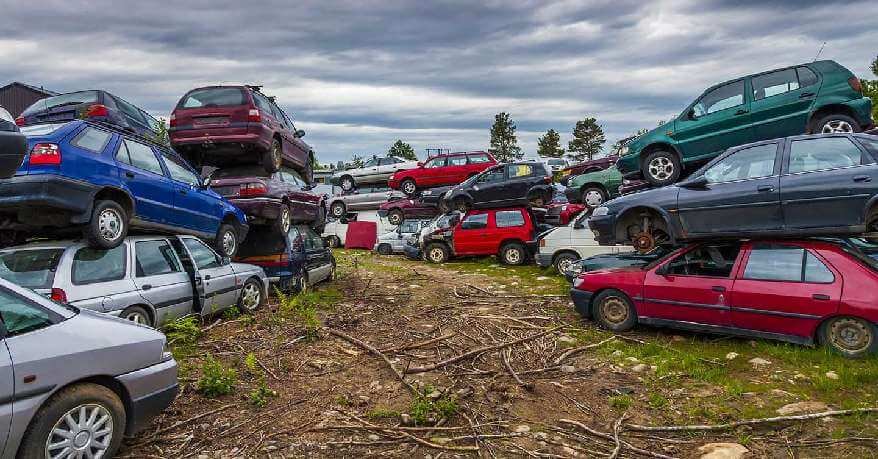For many of us, cars aren’t just machines—they’re part of our lives. They take us to work, on holidays, and become tied to countless memories. But no matter how much we love them, vehicles aren’t built to last forever. At some point, keeping an old or damaged car becomes more of a burden than a benefit.
If you’ve been holding on to a vehicle that constantly breaks down, guzzles fuel, or just takes up space in your driveway, it might be time to let go. Not sure if you’ve reached that stage yet? Let’s look at the top eight signs that tell you it’s time to scrap your car and move on.
Repairs Cost More Than the Car’s Value
One of the clearest indicators is when the repair bills outweigh the car’s actual worth. Maybe it needs a new transmission, an engine rebuild, or constant electrical fixes. If you’re paying thousands to keep it running when the market value is only a fraction of that, you’re essentially throwing money away.
A good way to check is by comparing repair quotes with what your car would sell for in its current condition. If the numbers don’t make sense, then scrapping and moving on is often the smarter option.
The Car Fails Safety or Emission Tests
In Sydney and across Australia, safety and emission standards are taken seriously. If your car fails inspection, the cost of bringing it up to standard can be overwhelming—especially for older models. You might need expensive exhaust work, a new catalytic converter, or other upgrades just to pass.
When a car repeatedly fails these tests, it’s a red flag. Instead of spending endlessly on compliance, choosing end-of-life vehicle recycling can save you stress and money.
Frequent Breakdowns and Reliability Issues
No one wants to be stranded on the side of the road, yet that’s what happens when a car is at the end of its life. If you find yourself calling roadside assistance more than you’d like to admit, it’s time to rethink things.
Repeated breakdowns don’t just cost money—they waste time and can be downright dangerous. If your car is becoming unreliable, scrapping it might be safer and more economical in the long run.
Rust and Structural Damage
Rust isn’t just about looks—it’s about safety. Once corrosion spreads to the frame or undercarriage, the structural integrity of the car is compromised. You could spend a fortune patching it up, but in most cases, severe rust is irreversible.
Driving a rusted vehicle also increases the risk of accidents, as weakened frames don’t offer the same protection. At this stage, keeping the car is neither practical nor safe.
It’s No Longer Fuel Efficient
Fuel costs are a big part of car ownership, and older vehicles are notorious for draining wallets at the petrol station. If you’ve noticed you’re filling up more often than before, it’s a clear sign the car’s efficiency is declining.
Modern cars are built to be more eco-friendly and fuel-efficient, which means keeping a petrol-hungry clunker isn’t worth it. Instead of burning money at the pump, you might be better off turning that old ride into cash with a professional car disposal service.
Insurance Declines or Becomes Too Expensive
Another overlooked sign is insurance. If insurers either refuse to cover your car or charge rates that seem unreasonable compared to its value, that’s a strong hint it’s no longer worth keeping.
Insurance companies make these decisions based on safety risks, repair costs, and market demand. If they’re saying the car isn’t worth it, they’re usually right.
The Vehicle Has No Market Demand
Tried selling your old car and had no takers? That’s a common sign it’s time to consider alternatives. While a brand-new Toyota or Mazda might attract buyers easily, a broken-down sedan or a non-running hatchback often doesn’t get a second glance.
But here’s the thing—even if there’s no resale demand, your old vehicle still has value in its parts and materials. Auto wreckers and junk car buyers see worth where private buyers don’t, making scrapping a reliable option.
Knowing when to let go of your car isn’t about loss—it’s about moving forward smarter. Quote Now!
You’ve Upgraded and the Old Car Just Sits There
Sometimes the decision isn’t about damage or breakdowns. Maybe you’ve bought a new car and the old one is simply sitting in the driveway gathering dust. Vehicles lose value every month they go unused, and leaving them parked indefinitely just accelerates wear and tear.
Rather than letting it rot away, scrapping turns that unused vehicle into instant cash and frees up space for better use.
Wrapping It Up
Saying goodbye to a car isn’t always easy, especially when it’s been with you for years. But when it’s costing more than it’s worth, unsafe to drive, or simply taking up space, the smart choice is to scrap your car and move forward.
Whether it’s rust, rising repair bills, or constant breakdowns, the signs are clear. By letting go at the right time, you save money, reduce stress, and even contribute to eco-friendly recycling practices. Instead of keeping a car that holds you back, why not turn it into something valuable and start fresh?
